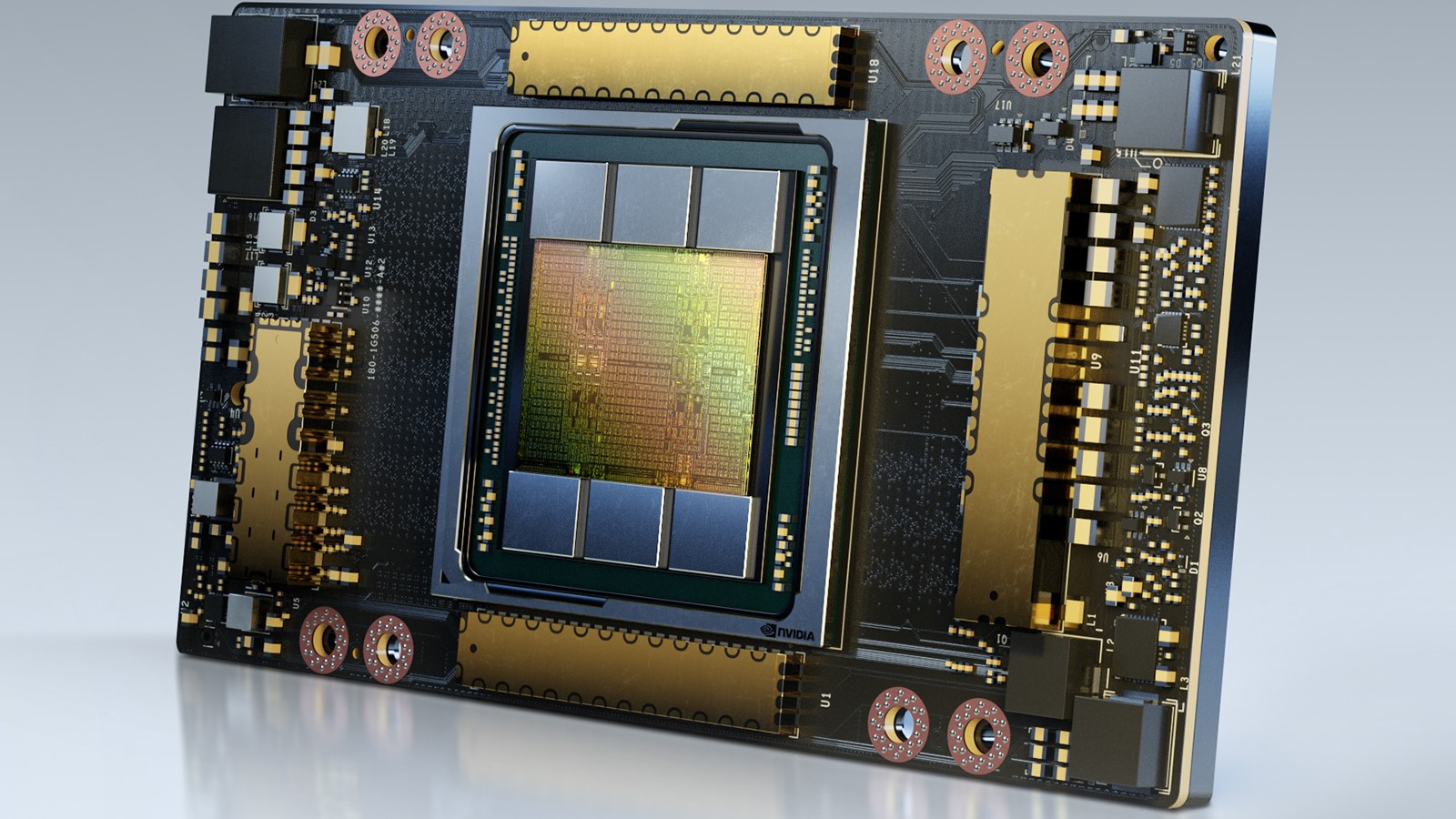U.S. blocks shipment of 24 Nvidia AI GPUs to China over concerns about self-driving truck company
The U.S. is being extra cautious.

The U.S. Department of Commerce has prohibited Chinese self-driving truck company TuSimple from sending 24 A100 GPUs to Australia, according to a report from the Wall Street Journal. Although Australia isn't under any sanctions or restrictions when it comes to graphics cards, the U.S. government is concerned these A100s might make their way into China, and has subsequently blocked the shipment. TuSimple denied these allegations, claiming the A100 GPUs were for its Australian subsidiary.
Lots of GPUs are now banned from China, particularly the higher-end models that could theoretically be used to advance the country's military goals and for other purposes that the U.S. disapproves of. The A100 was one of the first GPUs to fall under export restrictions, and the Department of Commerce is paying close attention in enforcing those rules.
When TuSimple attempted to ship 24 A100 GPUs to Australia, the Department's suspicions were roused. The company has been under heavy scrutiny for years; the Committee on Foreign Investment in the United States investigated TuSimple in 2021, and the company was accused of espionage in 2023. Although the shipment was only destined for Australia, the government was clearly afraid that TuSimple ultimately intended to deliver the A100s to China.
In a statement to the Wall Street Journal, TuSimple said the shipment was for its Australian subsidiary, which was just set up in October. TuSimple's justification is that its Australian subsidiary could make much better use of the 24 A100s than the soon-to-be defunct American branch of the company. The company's trucks are being auctioned off, so it's certainly true that those GPUs were unlikely to find much use in the U.S.
However, TuSimple may still have intended to get the A100s to China in the end. The Wall Street Journal spoke to "people familiar with the matter," who claimed TuSimple CEO Cheng Lu personally wanted to get the GPUs to China. These orders were apparently not kept in writing, but Lu's assistant did coordinate with TuSimple's Chinese office to ship the 24 A100s to Australia. The company's lawyers even gave input on the shipment, saying it was illegal to send the GPUs to China but not to Australia.
Chip smuggling is a key concern for the U.S. when it comes to enforcing its chip bans. Despite how strict these bans are, GPUs like the A100 are still able to get to China — albeit in very low quantities. In fact, the Department of Commerce might have been concerned about the TuSimple shipment especially because it contained so few A100s — which would make smuggling easier.
Get Tom's Hardware's best news and in-depth reviews, straight to your inbox.

Matthew Connatser is a freelancing writer for Tom's Hardware US. He writes articles about CPUs, GPUs, SSDs, and computers in general.
-
funguseater US blocks Shipment of 24 Nvidia GPUs to AUSTRALIA. Have you switched to AI generated Headlines, or is it just clickbait?Reply -
PEnns Does the following statement make any sense at all?Reply
"The U.S. Department of Commerce has prohibited Chinese self-driving truck company TuSimple from sending 24 A100 GPUs to Australia, according to a report from the Wall Street Journal. Although Australia isn't under any sanctions or restrictions when it comes to graphics cards, the U.S. government is concerned these A100s might make their way into China,"
The US is prohibiting a Chinese company from exporting its own 24 A100 GPUs to Australia...because the US doesn't want those Chinese GPUs....from going back to China, the country that produced them in the first place?? -
JTWrenn Over reach maybe but does anyone think that company wouldn't possibly try to send those chips back to china?Reply -
defunctup Reply
Uh no not at lol. what authority does the US have in prohibiting a Chinese company from exporting its own GPUs to Australia? if I was born in Germany and sent family members in another country some US company branded laptops I bought in Germany, how would they have any jurisdiction on what I do with my property? once an entity buys it, it's not the government's decision what I can or can not do with it as long as it's not harming anyone.d0x360 said:I'll keep it simple...
Good. -
thisisaname Reply
From what I can see from the Wall Street Journal article the GPUs are coming from their American operation as part of it's exit from the American market.defunctup said:Uh no not at lol. what authority does the US have in prohibiting a Chinese company from exporting its own GPUs to Australia? if I was born in Germany and sent family members in another country some US company branded laptops I bought in Germany, how would they have any jurisdiction on what I do with my property? once an entity buys it, it's not the government's decision what I can or can not do with it as long as it's not harming anyone.
Autonomous-trucking company TuSimple, facing several federal investigations, was preparing to exit from the American market for China when the CEO directed his staff to ship advanced semiconductors out of the U.S.
The 24 Nvidia chips, bound for a newly established subsidiary in Australia, never made it.